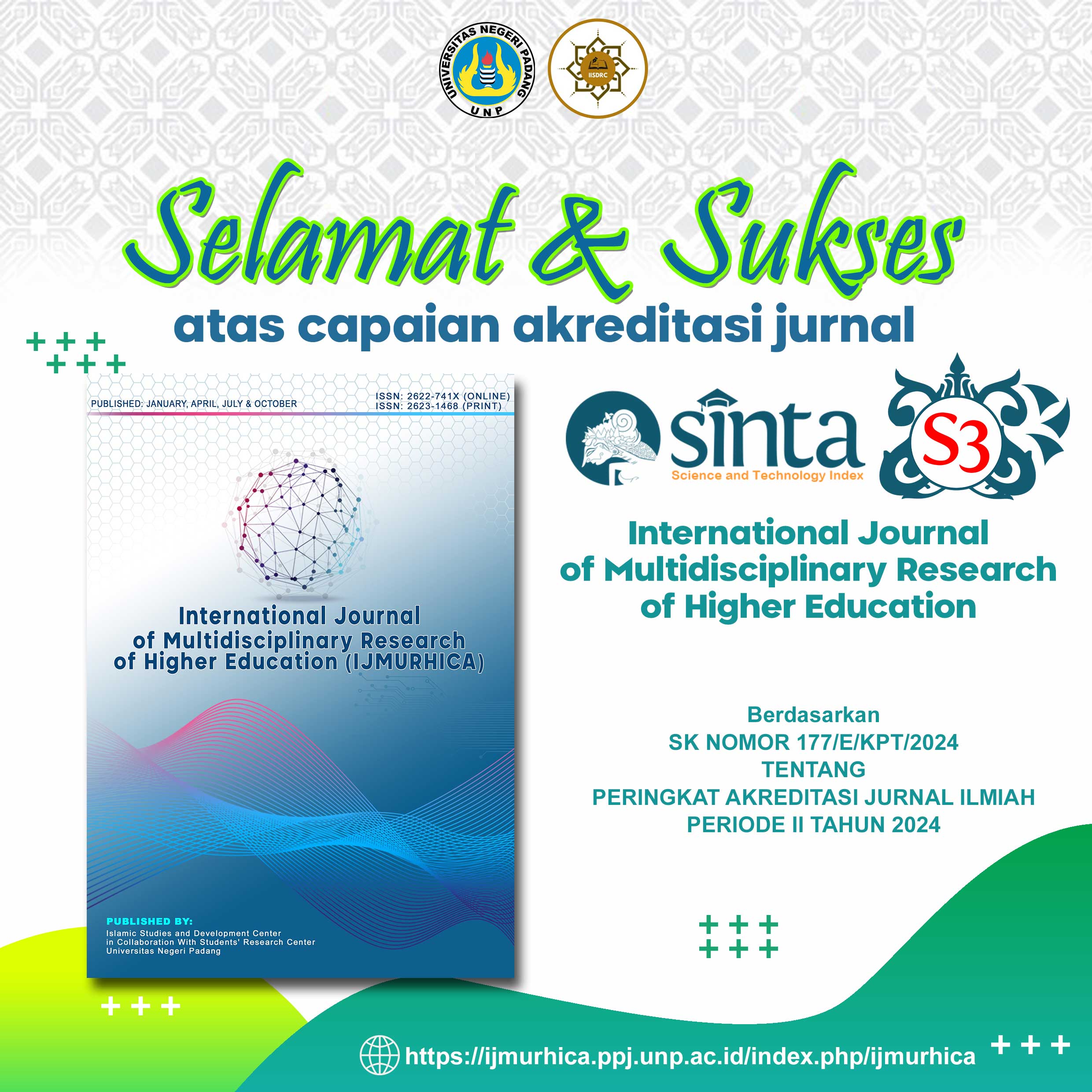Six Character Education Strategies for Early Childhood the Quranic Perspective
DOI:
https://doi.org/10.24036/ijmurhica.v8i4.464Keywords:
Learning strategies, character education, Alquran, early childhood educationAbstract
This article aims to examine learning strategies for early childhood education in instilling character education from the perspective of the Quran. The focus of this article is on how strategies such as habituation, role modeling, storytelling, educational play, rewards, and integration of daily activities can shape Quranic values such as religiosity, discipline, honesty, responsibility, empathy, and cooperation. This article was written using a qualitative method with content analysis. The data sources were taken from the Quran and supported by literature sourced from theories, expert opinions, books, and related journals. All data were analyzed thematically using the Miles and Huberman technique. The results of the analysis show that habituation and role modeling are the most effective methods, while other strategies serve as reinforcements. Overall, this article confirms that Quranic value-based learning strategies can shape children's character holistically from an early age, thereby providing a solid foundation for the formation of Muslims with good character.
Downloads
Downloads
Published
How to Cite
Issue
Section
License
Copyright (c) 2025 Mursal Aziz, Muhammad Hasbie Ashshiddiqi, Winda Sari

This work is licensed under a Creative Commons Attribution-ShareAlike 4.0 International License.






